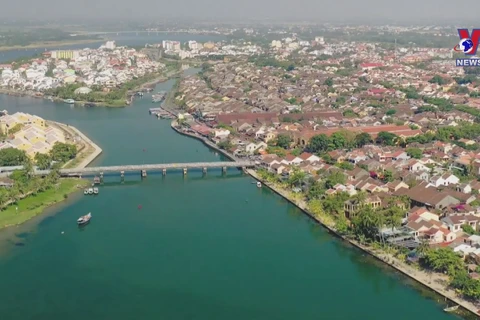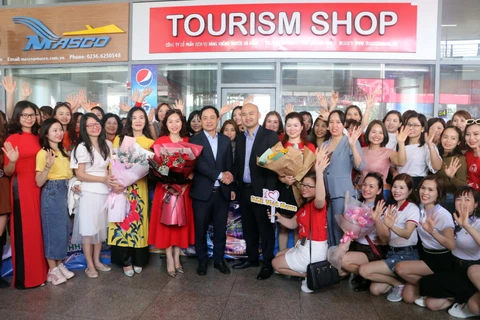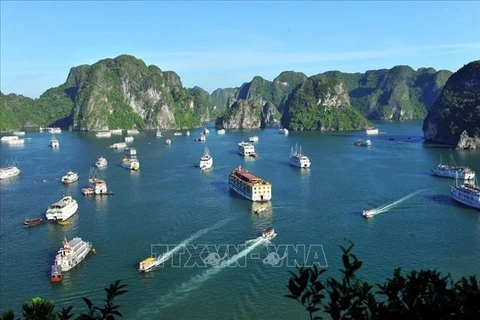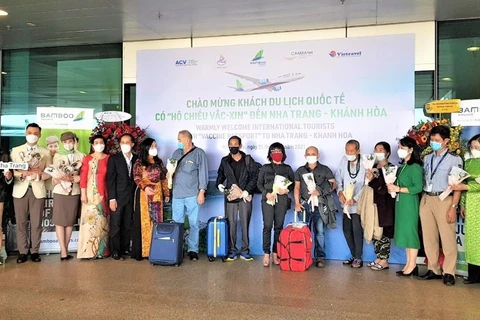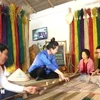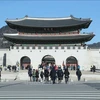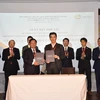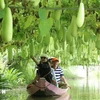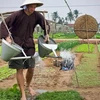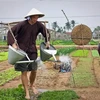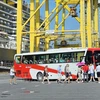Hanoi (VNA) – The COVID-19 pandemic has affected every socio-economic aspect over the last two years, including tourism. Though the coronavirus outbreak remains complex, with strong determination, Vietnam has been gradually restoring tourism activities and easing quarantine requirements since late 2021, to completely resume international tourism from March 15.
Tourism trends in 2022
The latest survey, conducted in 31 countries and territories by Booking.com, showed that technology will play an important role in helping travellers flexibly change their tourism plans.
It also found that 70% of Vietnamese tourists are seeking up-to-date technological advances, which suggests keywords or surprise opportunities based on their hobbies or previous budgets. This helps them enjoy completely new experiences and grasp every potential travel opportunity.
 In 2021, 90% of summer tourists prioritise the possibility of making last-minute changes when booking rooms. (Photo: VietnamPlus)
In 2021, 90% of summer tourists prioritise the possibility of making last-minute changes when booking rooms. (Photo: VietnamPlus) The rate of last-minute room bookings increased by over 40-fold during 2019-2021, compared to 2018-2019. Last year, 90% of summer tourists prioritised the possibility of making last-minute changes when booking rooms, which is forecast to remain travellers’ top priority for their trips in 2022 and beyond.
Instant translation apps supported by artificial intelligence have made it easier for travellers to directly negotiate about last-minute changes with homeowners who speak different languages.
Up to 79 percent of Vietnamese tourists pay attention to a creative service capable of predicting which countries will be safe for travelling or automatically suggesting destinations based on anti-COVID-19 requirements in those localities or countries (82 percent).
Anthony Lu, Director for China and Mekong at Booking.com, said tourism has been changing over the last two years, and the COVID-19 pandemic has led to considerable changes in Vietnamese travellers’ attitudes and behaviours.
In the new year, technology will continue playing an important role in narrowing the gap in the tourism community, as people will base their decisions on other tourists’ experiences, providing appropriate assessments about the time and destinations to visit, he went on.
Even though the world is gradually getting rid of the pandemic and entering a new normality, the tourism industry will still give the top priority to flexibility, according to Anthony Lu.
Domestic tourism dominates
The time when Vietnamese tourists are confident in going travel will be no sooner than the second quarter of 2022, as they will be concerned about personal financial affairs, the complex pandemic situation and changes to travel habits.
This is the result of a survey about Vietnamese tourists’ readiness to return to travel conducted by The Outbox Company, which supplies data research and analysis solutions for the tourism and hotel industries.
 Tourists tend to choose private relaxation, exploration and experience destinations. (Photo: Vietnamplus)
Tourists tend to choose private relaxation, exploration and experience destinations. (Photo: Vietnamplus) According to this survey, as it will take international tourism a relatively long time to recover, domestic tourism will play an important role in the recovery of Vietnam’s tourism sector.
Many experts and travel companies share the view that, even when Vietnam completely reopened tourism, international travellers will be reluctant to return to the country since the regulations on pandemic safety are too strict, making it hard to compete with many countries with more open policies like Thailand, Malaysia, Indonesia, Israel, and Australia.
The Outbox survey also pointed out that tourists are tending to select maritime or leisure destinations, as well as private relaxation, exploration and experience ones while skipping popular and crowded places.
 Vietnam is working hard to promote tourism with the 'Live fully in Vietnam: Travel to love' campaign. (Source: Vietnam National Administration of Tourism)
Vietnam is working hard to promote tourism with the 'Live fully in Vietnam: Travel to love' campaign. (Source: Vietnam National Administration of Tourism) The 'Travel in 2022 - A Look Ahead' report said global tourism in 2022 will outpace the level seen in 2019. The average spending per trip this year will be much higher than that in 2019, when travellers tend to increase experiencing domestic services, and domestic tourism will keep dominating.
In particular, a poll of travellers in five key markets, namely the US, the UK, Japan, Singapore, and Australia, found three core factors affecting their selection of decisions; indulging themselves with new destinations and pristine beauty; enjoying different experiences; and improving their knowledge about those destinations’ culture and history.
With these findings, travel businesses in Vietnam will have a basis to develop new products matching tourists’ demand in the coming recovery period./.

